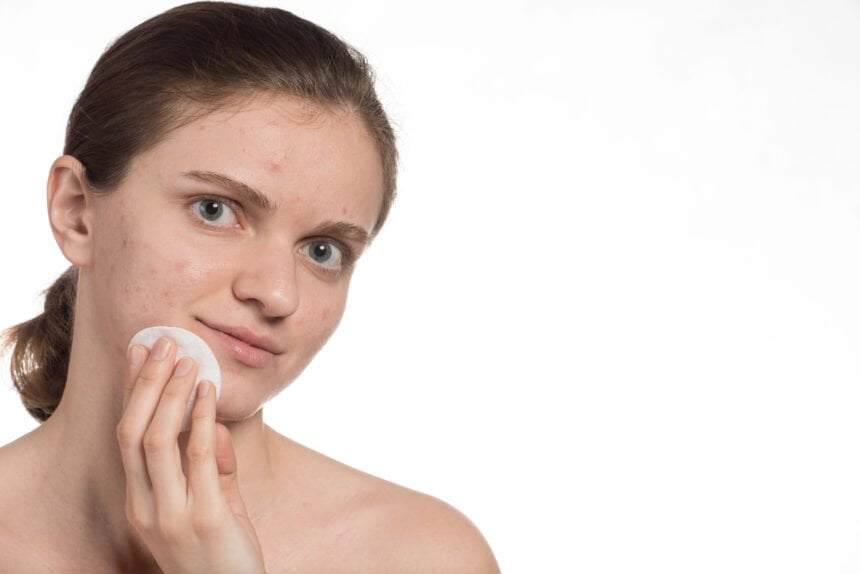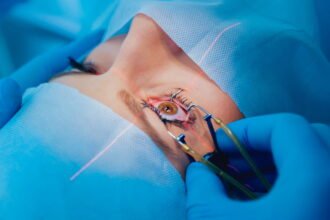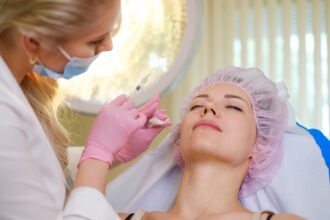The American Academy of Dermatology reports that around 50 million Americans suffer from acne each year. People that want to avoid dealing with it need to make skincare a top priority.
You catch a glimpse of yourself in the mirror and there it is – an angry, red bump forming on your chin. Your heart sinks. Just when you thought you’d left acne behind with your teenage years, it’s back with a vengeance. This is one of the reasons that dermatology and wellness go hand in hand.
Acne doesn’t discriminate. It can affect anyone at any age, leaving both physical and emotional scars in its wake. The good news? With the right knowledge and a tailored skincare routine, you can fight back against acne and reclaim your confidence and potentially prevent acne scars.
In this article, we’ll dive into the science behind acne-prone skin and unveil effective strategies to keep your complexion clear and radiant.
Understanding Acne-Prone Skin
Acne is more than just an occasional pimple. It’s a complex skin condition that can persist well into adulthood, affecting both your appearance and self-esteem.
What Causes Acne?
Acne occurs when hair follicles become clogged with oil and dead skin cells. This can lead to whiteheads, blackheads, or inflamed pimples. Hormonal changes, stress, and certain medications can trigger or worsen acne. Contrary to popular belief, acne isn’t caused by poor hygiene or diet alone, though these factors can influence its severity.
Building Your Acne-Fighting Skincare Routine
A consistent, targeted skincare routine is crucial for managing acne-prone skin. Let’s break it down into three essential steps:
Step 1: Cleansing
Start with a gentle, non-comedogenic cleanser. Look for products that remove excess oil without stripping your skin of its natural moisture. Cleanse twice daily, morning and night, to remove dirt, oil, and makeup that can clog pores.
Step 2: Treating
After cleansing, apply treatments containing active ingredients that target acne. These can include over-the-counter spot treatments or prescription medications, depending on the severity of your acne.
Step 3: Moisturizing
Even oily, acne-prone skin needs hydration. Choose a light, oil-free moisturizer to keep your skin balanced. Properly moisturized skin is less likely to overproduce oil, which can lead to more breakouts.
Key Ingredients for Acne-Prone Skin
When selecting skincare products, look for these proven acne-fighting ingredients:
Salicylic Acid
This beta-hydroxy acid (BHA) penetrates pores to remove excess oil and dead skin cells. It’s excellent for preventing and treating non-inflammatory acne like blackheads and whiteheads.
Benzoyl Peroxide
Known for its antibacterial properties, benzoyl peroxide effectively kills acne-causing bacteria. It’s particularly useful for inflammatory acne but can be drying, so start with a lower concentration.
Niacinamide
This form of vitamin B3 helps regulate oil production, reduce inflammation, and improve overall skin texture. It’s gentle enough for most skin types and can be used alongside other acne treatments.
Common Mistakes to Avoid
Over-Cleansing
While it’s tempting to wash your face frequently when dealing with acne, over-cleansing can strip your skin of natural oils, leading to increased oil production. Stick to cleansing twice a day unless you’ve been sweating excessively.
Using Harsh Products
Aggressive scrubs or alcohol-based toners might seem like they’re working by drying out your skin, but they can actually irritate and worsen acne. Opt for gentle, pH-balanced products instead.
Maintaining Clear Skin Long-Term
The most effective skincare routine is one you can maintain consistently. Be patient – it can take several weeks to see improvements. Remember, skincare is just one part of the equation. A holistic approach that addresses factors like stress, hormones, and nutrition can make a significant difference.
For those seeking comprehensive support in their battle against acne, consider incorporating supplements like Acne Clear Formula by PureHealth Research. This innovative formula is designed with ingredients that are known to address multiple factors contributing to acne, including hormonal balance, stress reduction, and skin repair. With a blend of vitamins, minerals, and natural extracts, it works from the inside out to promote clearer, healthier-looking skin.
In Conclusion
Managing acne-prone skin requires patience, consistency, and the right combination of products and ingredients. By understanding your skin, following a targeted routine, and avoiding common pitfalls, you can achieve the clear, confident complexion you deserve.
Remember, everyone’s skin is unique, so don’t hesitate to consult with a dermatologist if you’re struggling to find an effective routine. With the right approach, those days of fearing the mirror can become a thing of the past.










